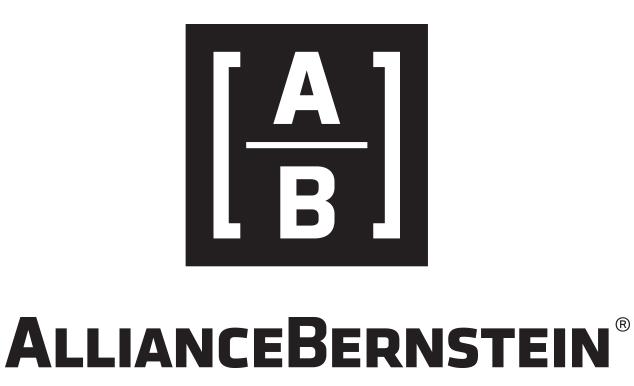In your opinion, what is the role of the Metro Nashville Public Schools school board?
In my opinion, the MNPS school board serves to support, regulate, and advocate for leadership and policies that will provide the best possible educational outcomes for our beautiful city’s more than 84,000 diverse and special public school students. As a district representative, an MNPS school board member also serves as a liaison between the specific district’s constituents, families, students, educators, and schools and MNPS leadership.
In light of the COVID-19 crisis, what immediate action does the school board need to take to provide an excellent public education for all students?
Our Metro Schools were in crisis before the recent tornadoes and COVID-19 and now the urgency to effectively serve our students is even greater. We must:
- Advocate for and protect funding for our educators and schools;
- Support flexible plans for re-opening that will prioritize student’s education and protect the health of our community;
- Prioritize the social and emotional learning supports that will help students, families and educators navigate this unprecedented and stressful time;
- Take proactive steps to combat COVID-extended summer slide in student learning.
Other than the COVID-19 crisis, what is the biggest issue facing the district right now?
As a parent of three children who ride on the bus to our zoned community local MNPS school, I want every child in the district, regardless of income or address, to have access to the high-quality education that my children receive. For many families in our city, the local, convenient public school option for their children is no longer desirable. No under-enrolled and lower/middle performing school can provide the high-quality education that all children deserve. Without transportation to lottery, magnet or charter school alternatives; families that cannot transport their student(s) to another school do not have any choice other than to send their children to their local school and risk not providing them with a high-quality education. This is inequitable and unacceptable.
What do you think is the cause of the achievement gaps in our district? As a school board member, what would you do to decrease these gaps?
To begin, I suggest we try to change the language we are using to describe the “achievement gap,” to the more fitting “opportunity gap.” Achievement gap has a deficit framing that puts the blame on our students and their families, who also often happen to come from minority and/or lower-income backgrounds. A student’s background can drastically limit the opportunities available to them to succeed, especially when compared to other students. Opportunity gap more clearly frames how we, as a community, are failing our students by continuing to compare them to students with privileged, English-speaking family backgrounds. To effectively provide our students with the opportunities they need to succeed, we need to combat the structural inequities that led us to this situation in the first place.
As a school board member, from whom will you seek advice and input when weighing key decisions?
MNPS and Metro Nashville leadership need to get on board and take time to solicit feedback from and listen to all of Nashville’s voices, especially those that have been sidelined. We are better together. We have to get serious and bold about community communications and engagement to repair distrust that has developed because of years of quiet and loud inequitable decisions. To me that means culturally appropriate focus groups with all families, and all stakeholders to intentionally listen to their needs and communication preferences. We must keep everyone in the loop and involved in the conversation to provide insight into future policy considerations. Through collaborating and listening to local leaders in public education like new MNPS hires Mr. Ashford R. Hughes, Sr. District Executive Director of Diversity, Equity, and Inclusion; and Dr. Michelle Stringer, Chief of Student Support Students, and leaders in equity such as Dr. Fallon Wilson of Black in Tech Nashville and others, I can better frame decisions. I also suggest we plan to engage in open non-competitive dialogue among organizations and movements that uplift our community like the Equity Alliance, the Tennessee Educators of Color Alliance, ConexiónEd, and the Nashville Public Education Foundation among others.
In your opinion, what is the biggest achievement the district has accomplished over the last decade?
Wow, the hardest question is at the end. Yes, it is an achievement that our city has managed to graduate incredible kids that go on to fabulous colleges, vocational schools, and careers. Yes, it is an achievement that there are some really functional schools and hundreds of immensely talented, diverse, compassionate and loyal educators throughout our huge school district. And yes, I am encouraged in Nashville’s decision to appoint Dr. Adrienne Battle, a woman in a top leadership position who will bring her experiences as a Black parent, educator and MNPS graduate. On a personal note, I’ve seen firsthand the great achievement the district has accomplished for my family. My three elementary-school-aged children have thrived in our local zoned school. However, this achievement is painfully bittersweet. In my years of professional work researching Metro Nashville Public Schools and after talking with other MNPS families whose children attend other, lower/middle performing schools, I am outraged. I cannot stand on the sidelines while we have inequitable public education in Nashville. As Ms. Sonya Thomas, Nashville parent and also leader of the parent equity education movement, Nashville P.R.O.P.E.L., wrote in her May 18 op-ed in The Tennessean, “Sadly, this pandemic has amplified the ugly truth that our school system has little, if any, success with educating our city’s neediest children. But now, as we end this school year, the time for extending grace is over. Now is the time for a reckoning.” I agree and commend the heroic and tireless Ms. Thomas. The disturbing reality of how truly inequitable the difference between my zoned local school and the lower/middle performing schools is repulsive. What has happened year after year to other children, educators and families because of these inequities is not moral. I am dedicated to supporting equitable and progressive changes. And thank you, Ms. Thomas, for finishing your piece boldy. I agree with you. “We want to be clear: we refuse to return to business as usual.”



